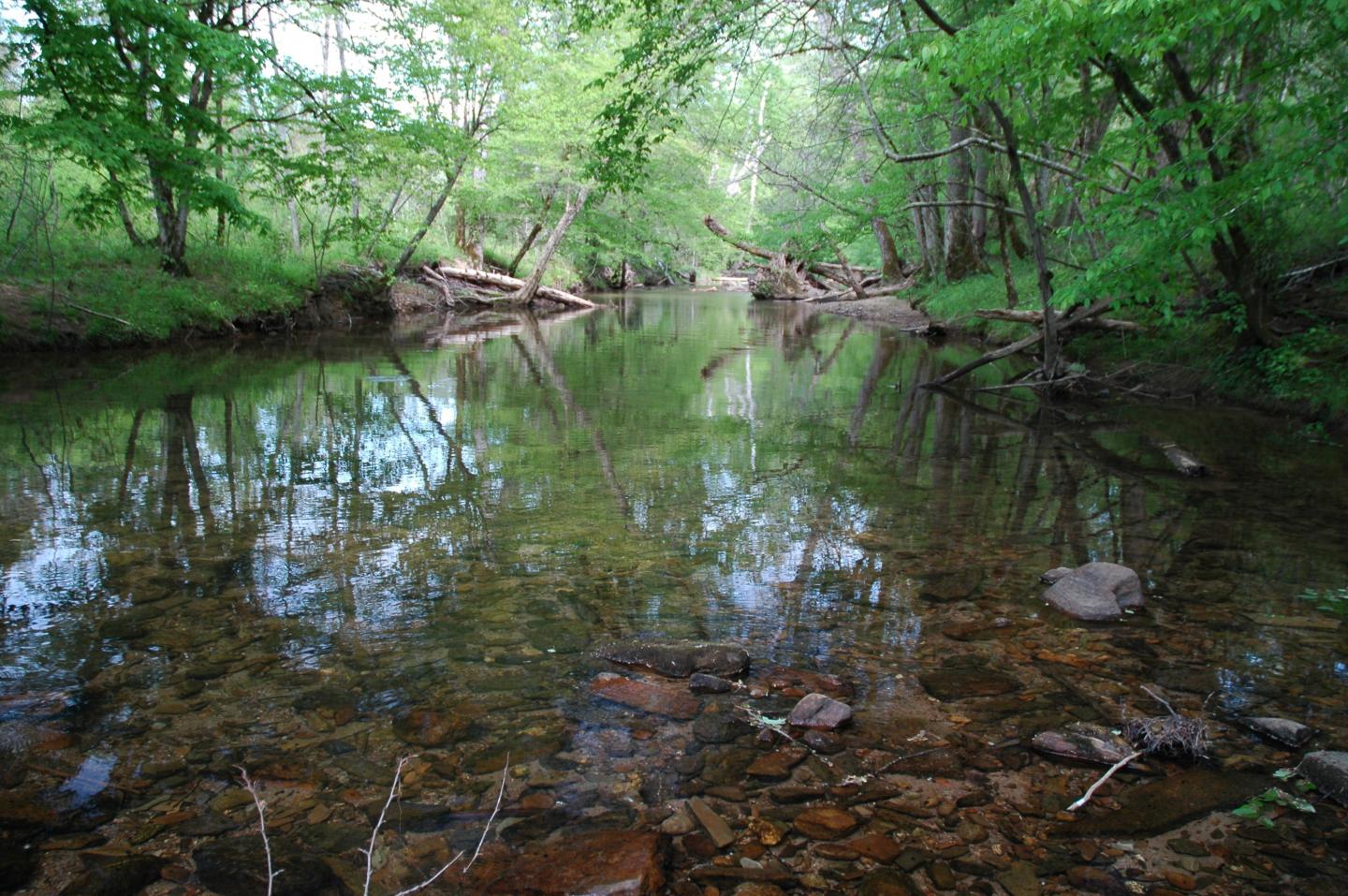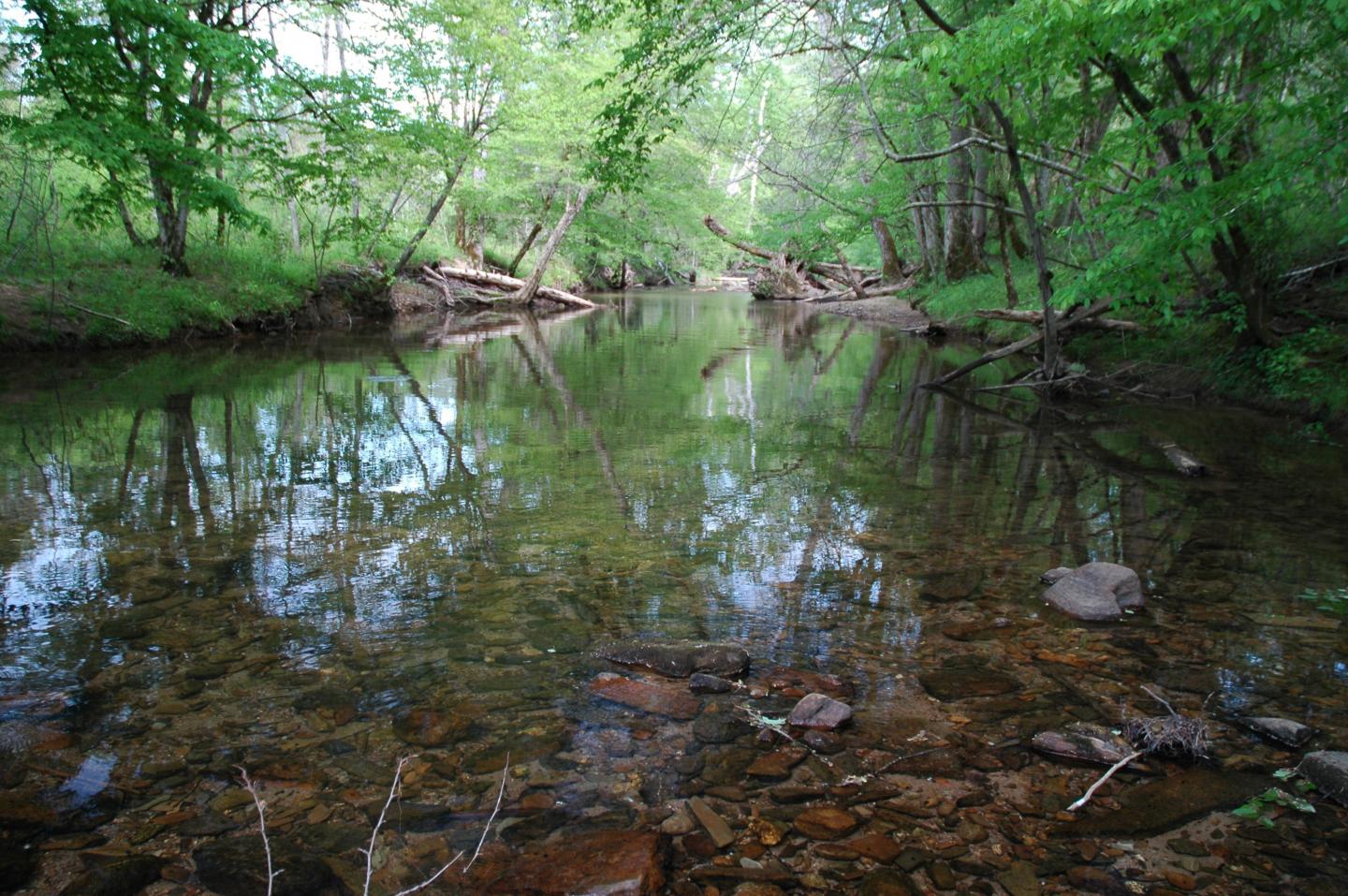
Credit: Meryl Mims, Virginia Tech
The National Science Foundation (NSF) is investing $9 million in nine new projects to research biosphere processes and their complex interactions with climate, land use and invasive species at regional to continental scales. The awards are funded through NSF's MacroSystems Biology and Early NEON (National Ecological Observatory Network) Science program.
"These projects leverage NSF investments in biological infrastructure to study how organisms and ecosystems respond to environmental changes from local to continental scales," said Joanne Tornow, NSF acting assistant director for biological sciences. "Most of these projects use data from NEON to address long-standing questions that could not be addressed even five years ago, without access to standardized, replicated, publicly available ecological data from ecosystems across North America."
MacroSystems Biology is an approach that works to identify and explore scales of biological processes and patterns and their cross-scale interactions that can operate in in non-linear, surprising ways. The new research awards will explore ecological interactions that operate across spatial and temporal scales. Findings from environmental, biological and ecological research can be incomplete if interacting scales are not considered (e.g., studies of local ecosystem effects that ignore the impact of changing global processes).
NEON comprises 81 NSF-funded sites around the nation that deliver high-quality, standardized ecological data to the scientific community and public through an open-access portal. NEON sites collect data through a unique combination of air-, ground- and water-based sensors, as well as field sampling with statistical, physical and biological modeling. The NEON network provides data that would otherwise be prohibitively expensive, thus playing a vital role in the push to solve major ecological challenges.
This year's awards will shed light on diverse and highly relevant environmental issues, including how wildfires affect areas including the agricultural frontier between the Amazon forest and the Cerrado savannas in Brazil – which significantly influences global climate – and another award that will study fire extinction in three other areas of the world prone to wildfires.
Another project will study the rapidly changing Arctic and tracking the dynamics of peatlands. Tundra soils store more carbon than any other place in the world but are vulnerable as the Arctic warms. Expanding peatlands may provide a "sink" for some of the carbon lost as permafrost thaws. This research will assess implications for global climate models and will address one of NSF's "Ten Big Ideas for Future NSF Investments," Navigating the New Arctic.
Six universities will collaborate to explore the dynamics of intermittent streams, which make up 59 percent of all U.S. stream length and flow only during certain times of year when upstream water or groundwater is plentiful enough. Intermittent streams are controlled by large-scale climate fluctuations and colonized by aquatic life under wet conditions, and their ecological significance will likely grow as the global environment changes and human demand for water increases.
###
New MacroSystems Biology awards fall into one of three categories:
- Full Research Award (FRA), which supports macrosystems biology research or innovative training to conduct such research.
- Early Career Track (ECA), for early career, non-tenured scientists.
- Early NEON Science Track (ENS), which allows for the innovative use of NEON samples and infrastructure.
The nine new awards, their principal investigators and associated institutions are below.
FRA: Scaling climate, connectivity and communities in streams
Daniela Allen, University of Oklahoma; Albert Ruhi Vidal, University of California, Berkeley; Michael Bogan, University of Arizona; Meryl Mims, Virginia Tech; Katie Costigan, University of Louisiana at Lafayette; Benjamin Ruddell, Northern Arizona University
ENS: Leveraging NEON to build a predictive cross-scale theory of ecosystem transpiration
Gabriel Bowen, University of Utah; Stephen Good, Oregon State University
FRA: Peat expansion in Arctic tundra — Pattern, process, and the implication for the carbon cycle (TundraPEAT)
Zicheng Yu, Lehigh University; Philip Camill, Bowdoin College; Steve Frolking, University of New Hampshire; Qianlai Zhuang, Purdue University; Julie Loisel, Texas A&M
FRA: Scaling fire size from local process to continental pattern
Carla Staver, Yale University
ECA: Resolving controls on lignin decomposition at the continental scale to reconcile classical and modern paradigms of soil organic matter
Steven Hall, Iowa State University; Samantha Weintraub, Battelle Memorial Institute
ECA: Phylogenetically-informed modeling of the regional context of community assembly
William Pearse, Utah State University
ECA: A lengthening vernal window: How vernal asynchronies in energy, water, and carbon fluxes impact ecosystem function
Elizabeth Burakowski, University of New Hampshire
ECA: Assimilation of tree-ring and forest inventory data across the interior western U.S.: A hierarchical analysis of patterns and drivers to forecast forest productivity
Margaret Evans, University of Arizona
ECA: Tropical biomes: How agriculture intensification and climate may alter fire regimes
Paulo Brando, Woods Hole Research Center
Media Contact
Ivy Kupec
[email protected]
703-292-8796
@NSF
http://www.nsf.gov
Original Source
https://nsf.gov/news/news_summ.jsp?cntn_id=296453&org=NSF&from=news





